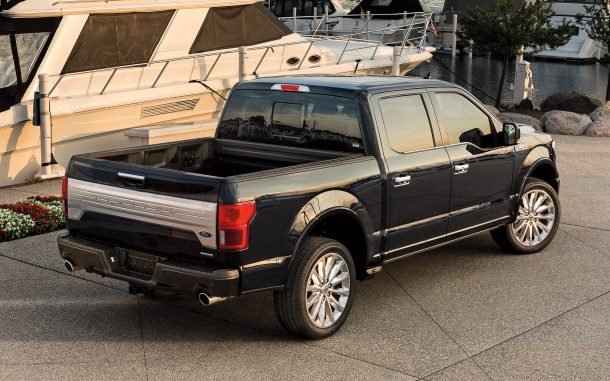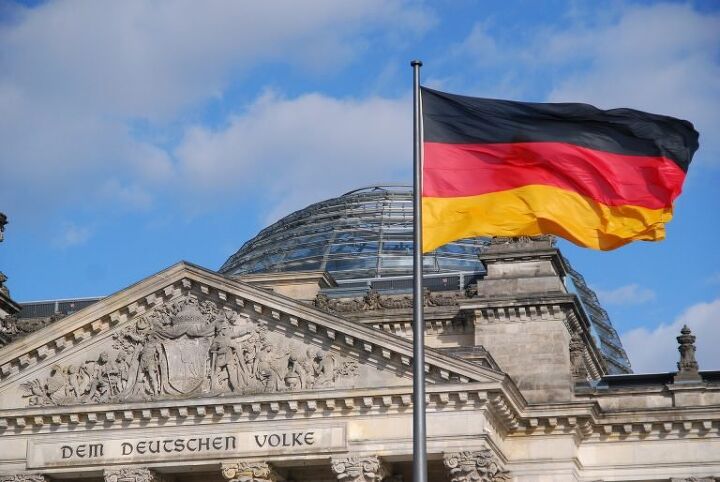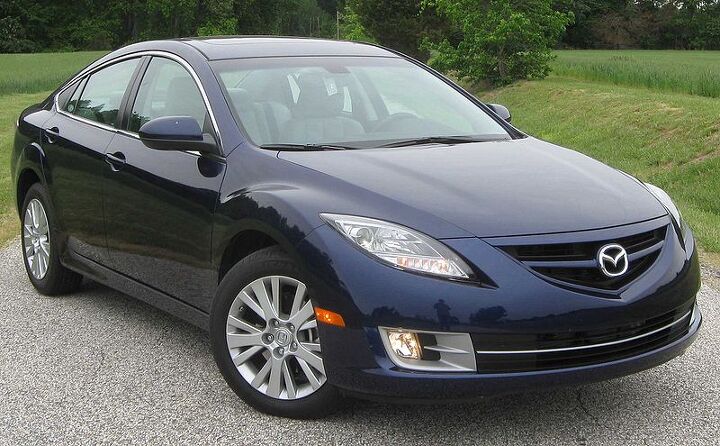#Investigations
As Justice Department Launches Ford Probe, Automaker Surprises Investors
That headline was unavoidable, by the way. On the same day Ford Motor Company released a better than expected first-quarter earnings report, it also revealed the Justice Department has opened a criminal investigation into its emissions certification process — a probe that could see fuel economy ratings rolled back.
Wall Street seemed much more interested in the financial news, however, giving the company’s stock a much-needed lift. In the Glass House, Jim Hackett must be smiling.
Federal Probe Covers 12.3 Million Vehicles; Airbags May Not Deploy in a Crash
The National Highway Traffic Safety Administration has launched an investigation into a slew of late-model vehicles equipped with airbags that may not protect occupants in the event of a crash. The vehicles, built by American, Japanese, and Korean automakers, were all manufactured between 2010 and 2019.
According to the NHTSA, the faulty airbags may be responsible for eight deaths.
EU Faults BMW, Daimler, Volkswagen With Emissions Collusion
It might have taken two years of investigative raids and Daimler acting as a whistleblower, but Germany’s Big Three automakers finally stand accused by the European Union of collusion. On Friday, the European Commission claimed that Volkswagen Group, BMW and Daimler broke antitrust rules by acting together to delay the introduction of two emission cleaning systems between 2006 and 2014.
The Commission’s preliminary view is that BMW, Daimler and VW participated in a collusive scheme, breaching the EU’s competition rules by limiting the development and proliferation of new emission cleaning technology for diesel and gasoline-fueled passenger cars sold in the “European Economic Area.” This collusion occurred in the framework of the car manufacturers’ so-called “circle of five” technical meetings — which includes VW Group’s Porsche and Audi.
Fiat Chrysler, JLR, Renault, Nissan, PSA Under Possible Antitrust Investigation
The European Commission is said to be investigating several automotive companies over possible antitrust violations relating to the sale of auto parts. According to Germany’s Der Spiegel, Renault, Nissan, PSA, Jaguar Land Rover and Fiat Chrysler Automobiles have all been placed under government scrutiny for possible price fixing. The report claims the manufacturers may have colluded to elevate the value of certain auto parts by as much as 25 percent.
Assuming the report is accurate, that would make this the EU’s second major automotive cartel investigation in the last two years.
Hyundai Raided in South Korea Over Theta II Engine Recall
In 2017, United States safety regulators opened a formal investigation into the recall of roughly 1.7 million vehicles built by Hyundai Motor Co and its affiliate, Kia Motor Corp, after being tipped off by a former employee. The informant claimed the automaker wasn’t handling the issue properly. That same year, South Korean civic group YMCA filed a complaint with local prosecutors alleging the automakers delayed fixing engine defects that prompted the same recalls.
According to Reuters, South Korean prosecutors raided the offices of Hyundai Motor Group’s quality division in Seoul on Wednesday. While the investigation concerns the company’s Theta II engines, both investigations seek to nail down a timeline of the recalls and establish whether or not Hyundai handled the situation responsibly.
Ghosn Investigation Leads Top Nissan Exec to Bolt
Nissan’s chief performance officer, José Muñoz, has resigned from the company amid an broadened investigation into former chairman Carlos Ghosn’s alleged financial misconduct. Muñoz, 54, who also headed up Nissan’s Chinese business, previous had his hand on the tiller of the company’s North American operations.
Muñoz’s sudden departure, which comes just days after the exec took a leave of absence, points to turmoil in the upper ranks of the Japanese automaker, with one insider calling it a “purge.”
Ford's Police Interceptor Utility Off the Hook As Brake Investigation Wraps Up
While the National Highway Traffic Safety Administration’s probe into reports of exhaust gasses leaking into the cabin of certain Ford Explorers continues, the company doesn’t have to worry about the brakes on its law enforcement variants anymore.
After launching an investigation into front brake hose failures — at the request of the Sacramento Police Department — in 2015, the NHTSA returned the verdict this week. Nothing inherently wrong with those front stoppers, it said. It seems the Sacramento PD really, really pushes its vehicles in pursuit training.
EU Launches Emissions Collusion Investigation Against German Automakers
Roughly one year ago, German automakers were confronted with a crisis. Following Volkswagen’s diesel emissions fiasco, European antitrust regulators became suspicious that BMW, Daimler, and VW Group were involved in a longstanding automotive cartel that cooperated on decisions regarding technical issues, development, supplier management, and illegal price fixing. Investigators were also concerned manufacturers worked together to standardize diesel treatment fluid (AdBlue) reservoirs to reduce exhaust emissions, then encouraged each other to cheat on emissions tests when they were deemed insufficient.
This resulted in a series of raids and then almost a full year of silence on the matter. However, if Volkswagen’s dieselgate has taught us anything, it’s that German authorities prefer a snail’s pace when pursuing a criminal probe.
Apparently unsatisfied with the initial findings, the European Commission opened an in-depth and official investigation on Tuesday against the “circle of five,” a group that includes Audi, VW, Porsche, Daimler, and BMW. The quintet is accused of holding meetings where they colluded to limit the development and application of certain emissions control systems for cars sold in Europe. There’s also an accusation of price fixing.
Volkswagen Group Fined an Additional $1.18 Billion for Emissions Cheating, More Suspects Emerge at Audi
In 2017, the U.S. hit Volkswagen with a $4.3 billion fine as part of the company’s plea agreement for violating of the Clean Air Act. It was a rough ride for the automaker, caught using defeat devices on its diesel engines, but it brought the scandal more or less to a close in America.
An ocean away, it seemed nothing would come of the endless raids by German authorities on VW-owned facilities. Apparently, the wheels of justice just turn a little slower in Europe, as the automaker was fined 1 billion euros on Wednesday. It’s one of the largest financial penalties ever imposed on a company by German authorities.
Severe Corrosion, Steering Failure Sparks Investigation of Older Mazda 6 Models
Mazda can’t seem to shake a recent history that saw its vehicles fall victim to the flesh-eating disease in embarrassing numbers. We’ve seen corrosion issues crop up in a myriad of recalls issued by the automaker over the past several years, and it’s raised its flaky brown head once again.
This time, it’s just a preliminary investigation, but probes conducted by the National Highway Traffic Safety Administration have a way of turning into recalls in a hurry. The model in question is the 2009-2010 Mazda 6, and the issue is a subframe that can become so corroded, you might have trouble staying on the road.
Utah Police Docs Add New Detail to Utah Autopilot Crash
The collision earlier this month between a Tesla Model S and a stopped fire truck in Utah didn’t result in serious injuries, but questions remain as to why the vehicle, piloted by a suite of driving aids, didn’t recognize the approaching danger.
Witnesses claim the vehicle didn’t brake in the moments leading up to the impact. The driver, admittedly distracted by her phone (for a period of 80 seconds), only reacted less than a second before impact, police said. Now, thanks to a South Jordan Police Department report obtained by The Associated Press (via The Detroit News), we know a little more about what happened in those last moments.
Germany to Continue Probing Winterkorn and VW, but Does That Mean Anything?
Germany intends to stay on ex-Volkswagen Group CEO Martin Winterkorn after news broke Thursday that the former top executive faces criminal charges in the United States.
The indictment, filed under seal in March, was opened in a U.S. District Court in Detroit on Thursday during VW’s annual meeting in Germany. “If you try to deceive the United States, then you will pay a heavy price,” said U.S. Attorney General Jeff Sessions. “Volkswagen’s scheme to cheat its legal requirements went all the way to the top of the company.”
However, the burden of tangible justice will likely fall on Europe. Germany doesn’t make a habit of extraditing citizens for trial, and it’s still conducting its own investigation into VW Group’s emissions-cheating scandal — which it intends to continue.
“Our investigation strategy does not change just because the Americans have filed charges against Winterkorn,” a spokesman for the prosecutors’ office of Brunswick said on Friday. You’ll have to excuse us for not having much faith Germany’s justice system, as its current strategy appears to involve conducting as many raids as humanly possible without any results.
Extensive Probing Continues In Germany
While companies are often found guilty of sketchy and illicit behavior, it’s becoming increasingly difficult not to feel some measure of sympathy for German automakers. The same goes for the government officials whose job it is to repeatedly raid the homes and offices of people employed by those manufacturers. Once gain, German prosecutors have searched both Volkswagen and BMW over diesel-related shenanigans.
Volkswagen saw 13 of its offices raided in Wolfsburg throughout the month of March. Braunschweig-based authorities seized physical and digital files in the hopes of catching the automaker in a lie from 2015. At the time, VW claimed an in-house investigation found it had understated fuel consumption and carbon dioxide emissions on no more than 36,000 vehicles. Considering the diesel emissions scandal affected far more vehicle than this, as well as the company’s much higher earlier estimate, prosecutors hope to catch the company out.
Meanwhile, BMW saw its facilities searched over suspicions that it employed a defeat device to circumvent diesel emission testing. The automaker said authorities were looking into “erroneously allocated” software on the BMW 750d and BMW M550d.
Whoops: Mercedes-Benz Diesel Probe in U.S. Uncovers Possible Defeat Device
U.S. investigators have found what could be illegal software modifications on Mercedes-Benz diesels intended to help the vehicles pass emissions testing. An engine management function called Slipguard recognized whether the car was undergoing testing procedures while another, called Bit 15, halted emissions cleaning after roughly 16 miles of driving. Together, the two pieces of software may amount to what is known within the industry as a “defeat device.”
When paired the software apparently enabled the cars to produce NOx levels up to 10 times higher than what is legally permitted. Interestingly, Mercedes-Benz issued a voluntary recall upon roughly 3 million European cars last month to reduce nitrogen oxide emissions by tweaking their electronic control units.
Uber Paid Hackers to Delete the Stolen Data of 57 Million People
In the midst of Uber Technologies’ corporate restructuring and cultivation of a squeaky-clean new image, the ride-hailing company was apparently hiding a dark secret. Striving for transparency, the company has now confessed that hackers stole the personal information of 57 million customers and drivers in October of 2016.
The coverup, apparently conducted by the firm’s chief security officer and another staff member, involved over $100,000 in payments to the hackers in the hopes to keep them quiet. The data lost included names, email addresses, and phone numbers of around 50 million Uber riders across the globe. Another 7 million drivers were also subjected to the digital attack, with over half a million of those losing their driver’s license numbers.




























Recent Comments